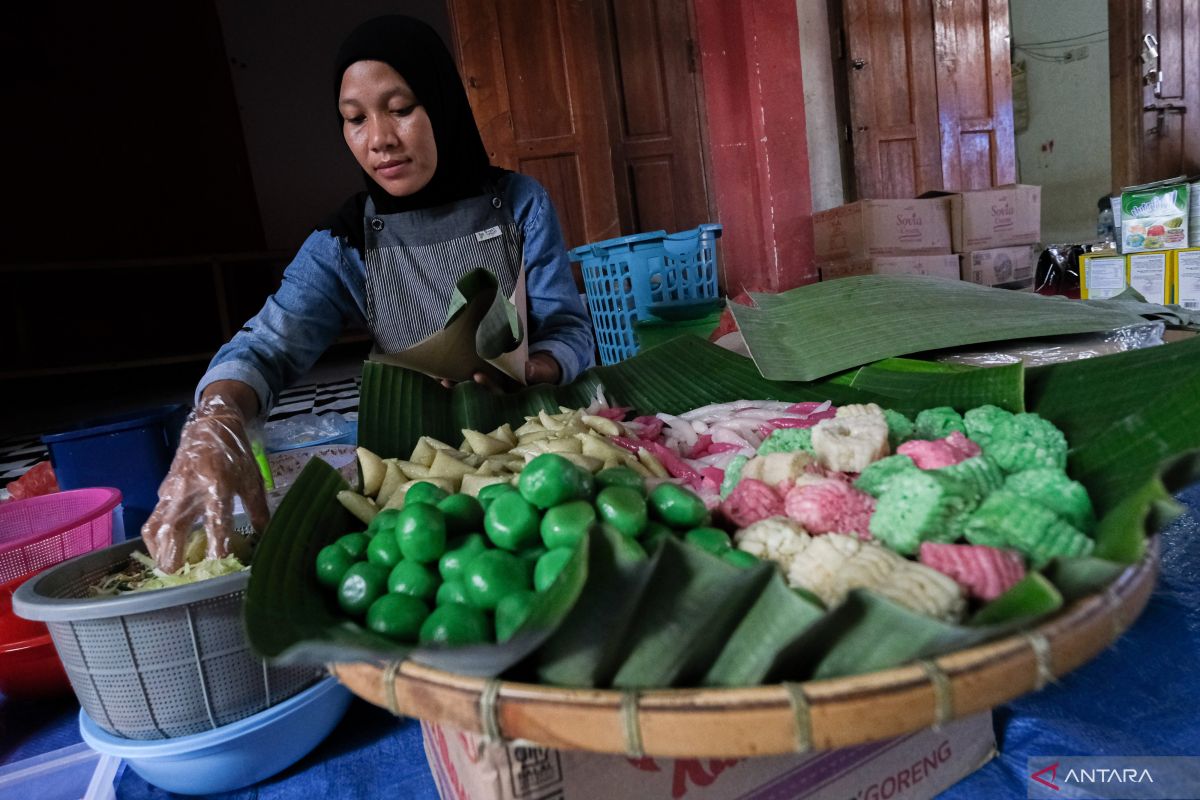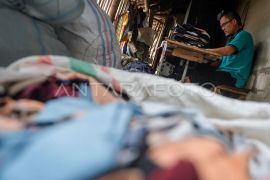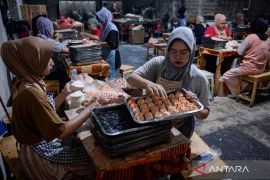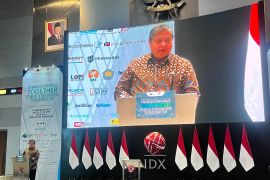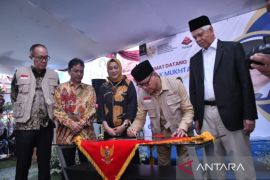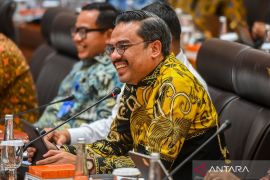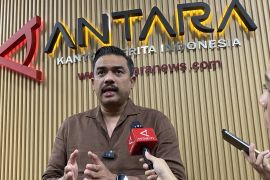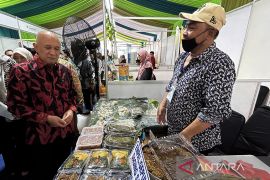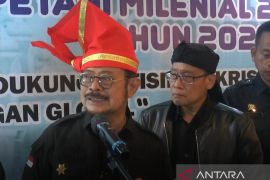The government then initiated the low-interest-rate People's Business Credit (KUR) as one of the key instruments to support micro, small, and medium enterprises (MSMEs) as the backbone of the country's economy.
Nevertheless, similar to other policies in the country, KUR faces challenges. Improvement is needed in several areas to maximize the program's effectiveness.
Fiscal Policy Agency (BKF) researchers at the Financial Sector Policy Center (PKSK) of the Ministry of Finance Syahrir Ika, R. Nurhidayat, and Mutaqin in 2016 conducted a study supported by other studies regarding KUR.
Their research shows that KUR distribution was mostly still misdirected, as it was distributed to bankable people.
Additionally, the number of KUR customers also tended to stagnate, still below five million since its launch in 2007.
To address these issues, the research team recommended that an alternative KUR scheme be created that would allow disbursal not only by banks but also by non-bank financial institutions (LKBB), with customer targets different from bank customers.
The proposed system may adopt a factoring system, where non-bank financial institutions transfer their current receivables to the Government Investment Center (PIP).
Furthermore, PIP would invest in non-bank financial institutions, which would then disburse KUR to customers with a maximum value of current receivables.
This is expected to broaden the customer base for KUR and mitigate default risks.
In 2015, Meby Damayanti and Latif Adam conducted a similar study on the People's Business Credit Program (KUR) as a Tool to Drive MSME Development in Indonesia, which was published in the National Team for the Acceleration of Poverty Reduction (TNP2K) Working Paper.
They found that although KUR aims to increase access to capital for MSMEs, its implementation faces challenges such as insufficient dissemination of information and coordination among related agencies, as well as minimal business assistance for KUR recipients. This results in KUR distribution not being optimal in fostering MSME development.
Indeed, so far, KUR remains one of the flagship policies to bolster the people's economy.
For 2025, the government, under the leadership of President Prabowo Subianto, has set a KUR disbursement target at Rp300 trillion (around US$18.42 billion), reflecting its commitment to supporting MSMEs.
However, going forward, it is essential that this program is truly able to respond to the complex needs of business players to ensure this major step remains on course.
KUR, with its various advantages, is often understood superficially as merely a source of capital when, essentially, its true essence lies in facilitating access, creating opportunities, and providing space for MSMEs to grow and leap further.
However, in its implementation, this program is still often hampered by the approach that tends to be uniform.
For instance, a small grocery store in the suburbs requires different support compared to farmers in rural areas.
Likewise, craftsmen in home industry centers need a different scheme than service business players in big cities.
This highlights a critical issue: the need for flexibility within the KUR framework remains unresolved.
In the field, KUR is often observed to only be disbursed to those who are "prepared enough."
This means that MSMEs already having access to banking are more likely to receive this credit than those who have yet to be reached by the formal system.
In reality, those left outside the formal banking system -- such as smallholder farmers, fishers, and street vendors -- often need support the most. Their access to technology and financial education is still limited.
Thus, going forward, the task is to ensure KUR stays aligned with the economic inclusion goal.
Progressive approach
However, behind all this, there are opportunities. What if KUR is designed with a more progressive approach beyond its role as a financing scheme?
For instance, the government can start to utilize technology to expand access not only for MSMEs that are already connected but also for those outside banking coverage.
For instance, local-based applications can also serve as tools for disbursing funds, providing training, building market networks, and providing business assistance.
Envision a simple application that can be used even by farmers familiar only with the basic features of a phone, with a guide available in regional languages.
In addition to technology, policy flexibility should be prioritized. Instead of implementing a one-size-fits-all scheme, the government can develop a loan model tailored to the characteristics of the businesses.
For example, farmers reliant on the harvest season need a different loan tenor than retailers.
If KUR were designed to be more responsive to meet specific needs like this, its impact could potentially be much more significant.
This nation also cannot ignore the potential of the community as the spearhead of KUR disbursement. Though banks are still the main channel, cooperatives, traditional institutions, or local community organizations can play an equally important role.
By involving communities, the fund disbursement can be more personal, contextual, and more effective.
Moreover, communities can accompany MSMEs in managing finances and planning business development.
However, all parties must be honest, given the substantial Rp300 trillion target. The government must also ensure transparency in the disbursement, considering the risk of leakage in large-scale programs like this.
Periodic and comprehensive audits are a must. In addition, periodic evaluations must be conducted, with the courage to admit when a scheme is not working and quickly adapt to a more effective approach.
A long-term view is also essential. So far, KUR has often been viewed as a single solution for MSMEs, even though it is merely a tool in a larger framework of economic development.
Without integrating considerations, such as market access, infrastructure, and entrepreneurship education into its framework, KUR risks becoming a policy that does progress.
A more holistic approach, where KUR is part of a mutually supportive strategy, is needed for all.
KUR's critiques should not be misconstrued as undermining the success of this program. Instead, they represent constructive feedback aimed at optimizing this policy, which has vast potential.
Achieving the Rp300 trillion target will require all stakeholders to embrace new mindsets and approaches that prioritize responsiveness and flexibility tailored to local needs. This aims to not only support the goal to be achieved but also ensure the benefits will be impactful for those who need them the most.
At the end of the day, KUR is all about hope; a hope that every small business has big opportunities to grow, a hope that Indonesia's economy does not only grow statistically but also has an impact on all levels of society.
It is also about hope that Indonesia, as a nation, can continue to learn, adapt, and present policies that are not only large in terms of numbers but also comprehensive in terms of impact and effective in terms of distribution.
Related news: Indonesia's Second Lady pushes for MSME growth in remote areas
Related news: Govt to establish holding to connect MSMEs, large industries
Translator: Hanni Sofia, Raka Adji
Editor: Azis Kurmala
Copyright © ANTARA 2025
